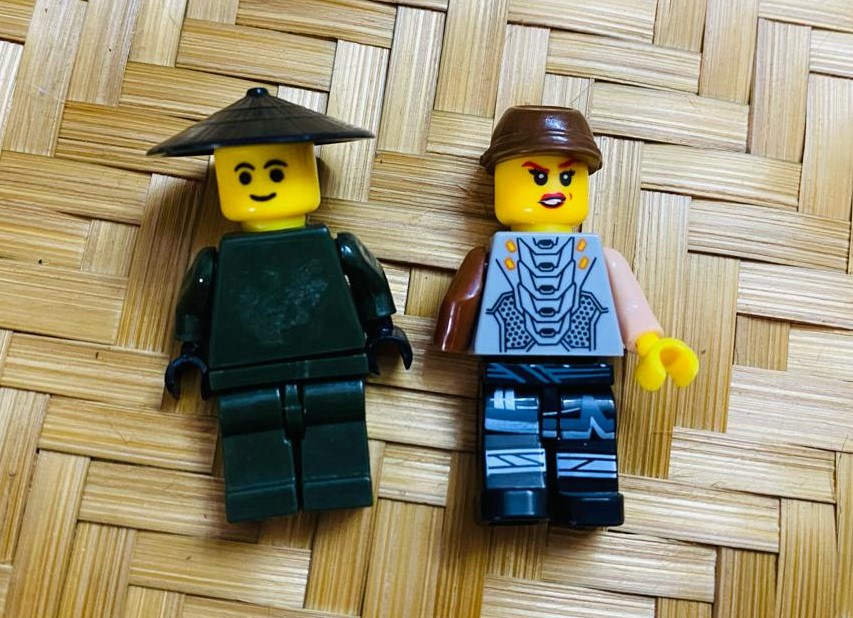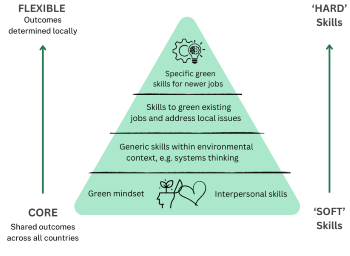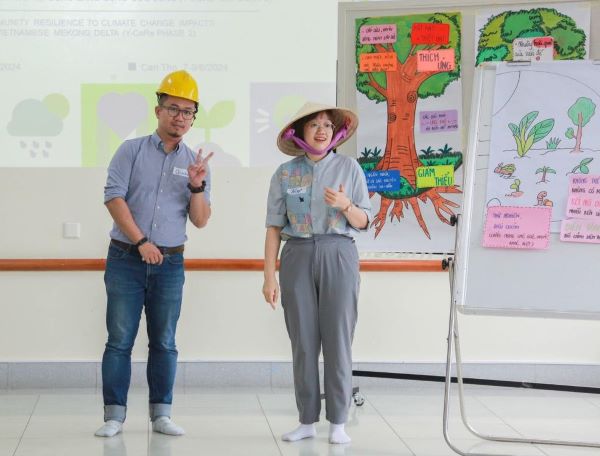
As COP29 comes to a close… Something that struck me from COP… Some link to the content...
Over the last year we’ve been working on Climate Skills: Seeds for Transition, a British Council programme supporting young people to access skills and networks to address and adapt to Climate Change and to play a role in the Just Transition.
It’s currently in Brazil, Indonesia, Mexico and Vietnam, developed and delivered in partnership with some brilliant local organisations in each country. Specific outcomes around ‘hard’, technical and green skills are flexible and developed in response to the local context, however there are core elements central to all programmes that we are exploring and evolving. Two of those are:
Strengthening relationships and valuing diversity / Grounded and Growing?
Strong, diverse and connected communities are more resilient to the impacts of climate change and better able to work, innovate and problem-solve together. Through the programme we focus on building relationships and the ‘soft’, interpersonal skills that help strengthen communities.
As part of an eco-system metaphor for the programme, we use the idea of grounding and growing for this core learning content. Grounding it in our lives, communities and what we have to offer - building confidence and self-awareness; which in turn helps us in growing connections with others, being open to difference and valuing diversity; and developing communication, creativity and other supporting skills.
We see these as foundations for having better climate conversations, gaining a deeper understanding of the situation and enabling effective collaboration across different communities, sectors, or generations. These skills and mindsets are also critical in greening the economy and provide a platform on which to develop more technical, green skills.

A gardener and engineer mindset
Through the process, we wear (sometimes literally) two hats, representing different mindsets and approaches to adopt when addressing climate change issues. The Engineer represents the technical, ‘hard’ skills, and keeps us focused on practical action and building efficient solutions. The Gardener represents the interpersonal, ‘soft’ skills, and helps us focus on seeing the bigger picture and creating the right conditions, and teaches us about the need to test, observe, learn and adapt.

We explore which kinds of environments and actions may be more suited to engineering or gardening approaches. For example, in predictable environments it may be possible to adopt good practice and be confident that a plan will deliver results.
Using these hats has helped us talk about strategy, planning and effective teams, and has been important in demonstrating the value of the diversity of skills and attitudes that people bring. A strategy of variation and selection - seeding multiple small actions and seeing which ones to take forward based on experience - can be more easily understood if you have actually been planting and nurturing seeds as part of the learning process.
____________________
The Climate Connection Hive
To help inform the future of Climate Skills and help build youth leadership towards the Just Transition, the British Council has launched ‘The Climate Connection Hive’. This campaign will advocate for holistic climate education and initiatives that widen young people’s access to skills and opportunities in support of a Just Transition.
We are now hosting and training a global network of young climate researchers, alongside the excellent GreenBox, who will lead the initial research to inform the campaign. It’s a compelling challenge to bring the team together across multiple languages and across all timezones, and as a group we are learning a lot as we go.
One established, The Hive imagines every young person as a pollinator of change, working together to spread climate knowledge and solutions.
You can contribute to the Hive research by responding to the survey here.

